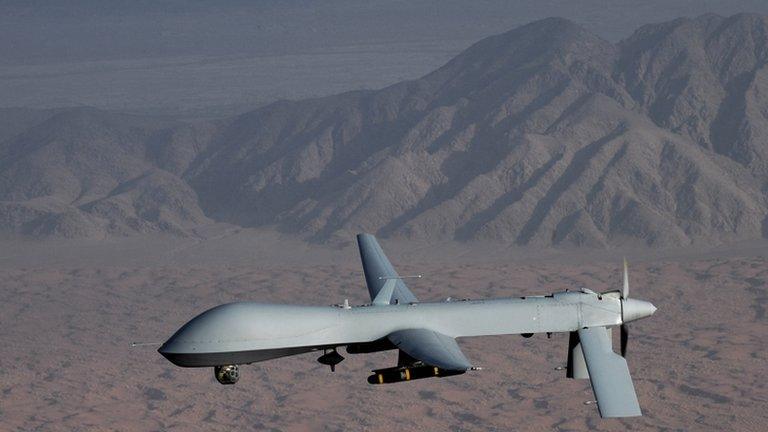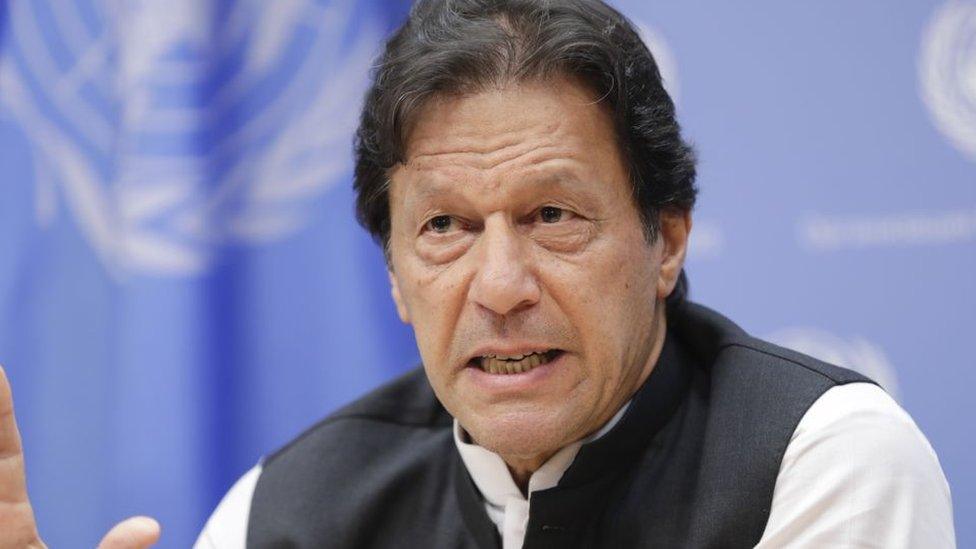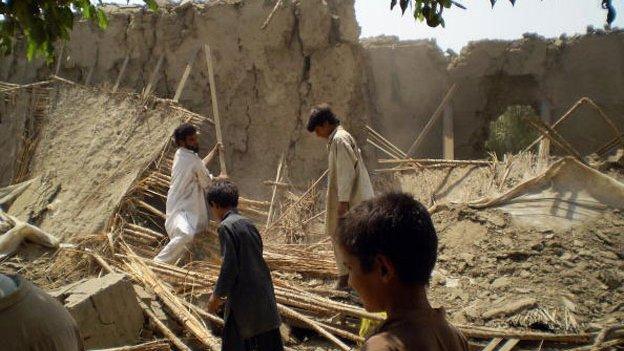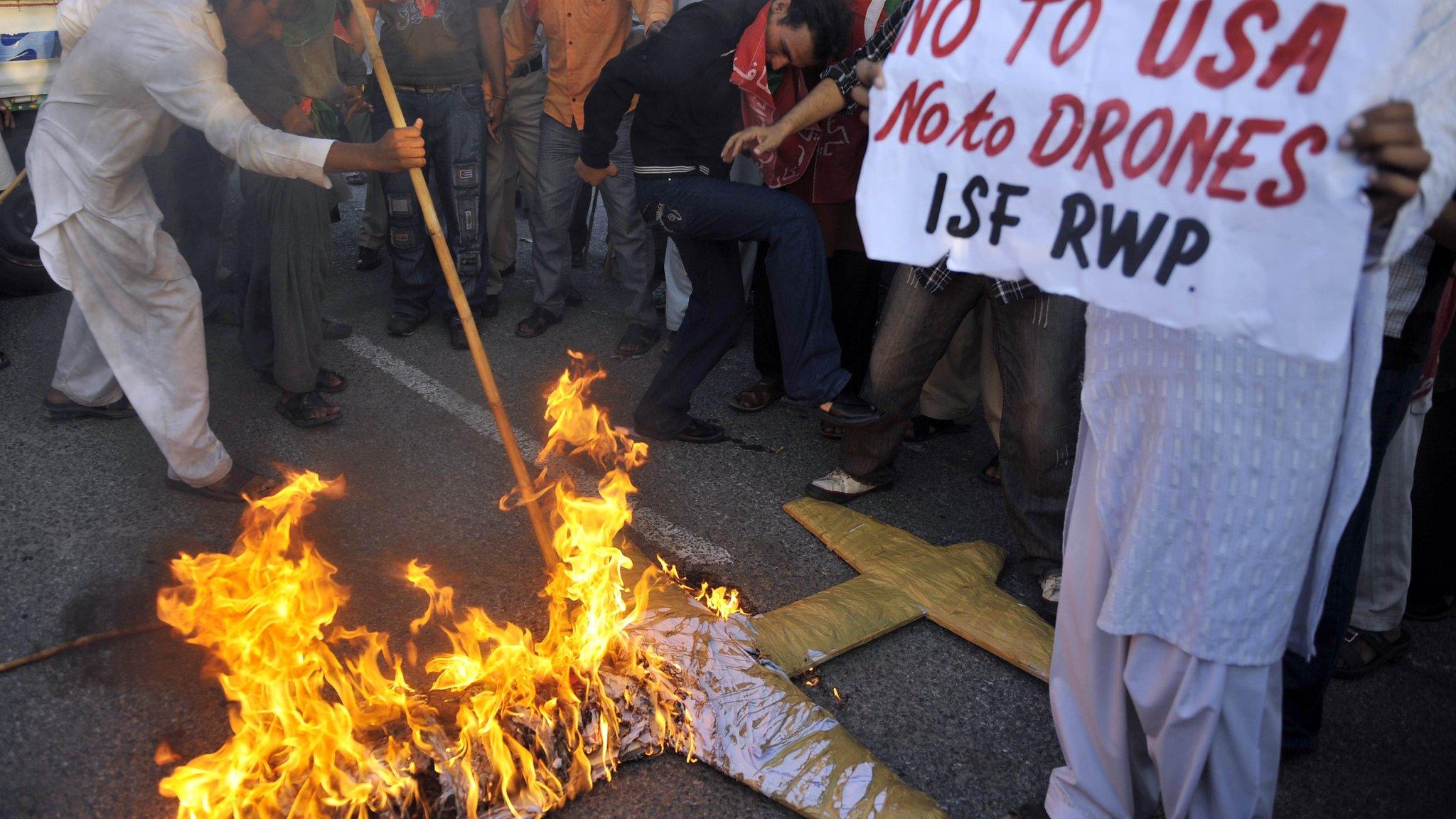Imran Khan's Pakistan anti-drone drive halts for night
- Published
- comments
The BBC's Orla Guerin: "Campaigners here say drones are killing innocent civilians as well as alleged militants"
A motorcade protest against US drone strikes in Pakistan, led by cricketer-turned-politician Imran Khan, has halted for the night in the north-west.
The action by thousands of protesters has reached Dera Ismail Khan, beyond which police say they are at risk of attack by Taliban militants.
Mr Khan wants to visit the tribal region where drone attacks have long targeted militants.
But militants dismiss the former cricket star as a tool of the West.
Mr Khan set off with a few hundred people from the Pakistani capital Islamabad, gathering support along the way.
Like many Pakistanis, he argues that attacks from unmanned aircraft kill large numbers of civilians and foster support for militants.
US officials insist strikes by the unmanned aircraft rarely claim civilian casualties and are an effective weapon against the Taliban and al-Qaeda.
About 80 Western peace activists are in the motorcade.
'Out of the question'
Footage broadcast on Pakistani TV showed people showering rose petals on the motorcade of some 150 vehicles.
Tweeting, external from Dera Ismail Khan, Mr Khan wrote: "Charged and emotional welcome in DI Khan. Peace march has become a catalyst for people's anger against drone attacks."
Speaking to the private TV channel Dunya, he said he would consult his political allies on the situation before attempting to reach the South Waziristan region on Sunday.
"We have come here for peace," he said. "I don't want to put the life of my guests in danger but I would like to know the level of the threat."
Kifayetullah, the commissioner of Dera Ismail Khan who uses one name, told AFP news agency it was "out of the question" that the protesters would enter Waziristan.
"Security will be provided to the rally but roads beyond Dera Ismail Khan will be blocked because there are threats of IED, sniper and bomb attacks," he said.
"We have to protect the lives of everyone."
Earlier, the Taliban distributed leaflets in Dera Ismail Khan saying they would "welcome" the motorcade with bombs.
'Tight leash'
Before setting off from Islamabad, Mr Khan said: "No-one should be allowed to be judge, jury [and] executioner.
"It's totally counter-productive. All it does is it helps the militants to recruit poor people. Clearly if they were succeeding, these drone attacks, we would be winning the war. But there's a stalemate."
He had earlier told the BBC that he would authorise the shooting down of US drones over his country if he became its head of government because they violated Pakistan's sovereignty.
Critics accuse him of trying to boost his party's popularity but supporters say the action shows he is in touch with the concerns of Pakistani people.
Mohammad Ansar Adnan, a student in Islamabad, told Reuters news agency that drone attacks were "an escalating problem".
"If Imran Khan is taking a step to resolve this issue, I think we should all go along with him, and once we are there, we should offer prayers for peace."
The government of Pakistani President Asif Ali Zardari says drone strikes are counterproductive and a violation of its sovereignty.
However, it has done nothing to stop them and many Pakistanis - including Imran Khan - believe this amounts to tacit consent.
In September, a report by Stanford and New York Universities in the US said Pakistani civilians were being "terrorised" 24 hours a day by CIA drone attacks.
It said rescuers treating casualties were also being killed and wounded by follow-up strikes.
The scale of civilian deaths has been difficult to assess because independent media and researchers are denied access to the tribal areas.
US President Barack Obama has insisted that the drone strategy is "kept on a very tight leash" and that without the attacks, the US would have had to resort to "more intrusive military action".
- Published5 October 2012

- Published1 February 2024

- Published4 October 2012

- Published31 January 2012
- Published25 September 2012
